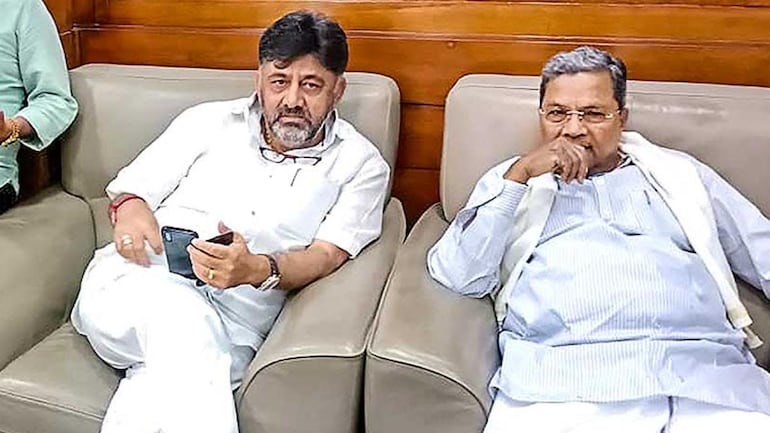
Karnataka govt decides to repeal anti-conversion law; approves revision of textbooks

Clearly on a path to undo whatever laws the previous BJP government had implemented, the Karnataka cabinet on Thursday (June 15) has decided to repeal the anti-conversion law introduced by the previous BJP government.
The government is all set to introduce a bill in this regard in the upcoming legislature session, which starts on July 3.
“The Cabinet discussed the anti-conversion bill. We have approved the bill to repeal the changes that were brought in by them (BJP government) in 2022. It will be tabled during the session starting from July 3,” law and parliamentary affairs minister H K Patil told reporters after the Cabinet meeting.
Approves revision of textbooks
Meanwhile, in a related development, the Karnataka cabinet on Thursday approved the revision of Kannada and Social Science textbooks of class six to ten in the state, for the current academic year. The chapters on RSS founder Keshav Baliram Hedgewar and Hindutva ideologue V D Savarkar among others will be removed.
It has also consented to add chapters on Savitribai Phule, Nehru’s letters to Indira Gandhi and poetry on BR Ambedkar, and discard the changes that were brought in by the previous BJP government. The Congress had in its poll manifesto promised to undo the changes made to school textbooks when the BJP was in power, and had also promised to scrap the National Education Policy (NEP).
“Regarding text book revision, the cabinet discussed the proposal brought by the department, the lessons to be removed and added, and the decisions to be taken, and has given its approval,” Patil said after the cabinet meeting.
Karnataka primary and secondary education minister Kumar Bangarappa said it was a Congress promise in the manifesto to revise the text books and the Chief Minister Siddaramaiah has consistently given his guidance on this.
Also read: CM Siddaramaiah launches free bus travel scheme for women in Karnataka
The Anti-conversion law
The Karnataka Protection of Right to Freedom of Religion Act (anti-conversion law) came into effect in 2022, despite opposition from the Congress.
The act provides for the protection of the right to freedom of religion and prohibition of unlawful conversion from one religion to another by misrepresentation, force, undue influence, coercion, allurement or by any fraudulent means.
It proposed imprisonment from three to five years with a fine of ₹25,000, while for violation of provisions with respect to minors, women, SC/ST, the offenders will face imprisonment from three to 10 years and a fine of not less than ₹50,000.
The act also makes provisions for the accused to pay up to ₹5 lakh as compensation to those who were made to convert, and with regards to cases of mass conversion, there shall be a 3 to 10-year jail term and a fine of up to ₹1 lakh.
It also states that any marriage that has happened for the sole purpose of unlawful conversion or vice-versa by the man of one religion with the woman of another, either by converting himself before or after marriage or by converting the woman before or after marriage, shall be declared as null and void by the family court.
Also read: Acres of land allotted to RSS, affiliates will be reviewed: Karnataka Minister
Wherever the family court is not established, the court having jurisdiction can try such a case, on a petition presented by either party thereto against the other party of the marriage.
The offence under this act is non-bailable and cognisable.
The act mandates that persons who wish to convert to another faith shall give a declaration in a prescribed format at least 30 days in advance to the district magistrate or the additional district magistrate specially authorised by the district magistrate in this regard of his residing district or place of birth within the state.
Also, the religious converter who performs the conversion shall give 30 days advance notice in a format, to the district magistrate or the additional district magistrate.
Piloting the bill in the Assembly, the then home minister Araga Jnanendra had said the person who wishes to convert will lose the religion of his or her origin and the facilities or benefits attached with it, including reservations; however, one is likely to receive the benefits entitled to, in the religion, he or she converts to.
(with input from agencies)

